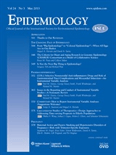
EPIDEMIOLOGY
Scope & Guideline
Illuminating critical trends in health and disease dynamics.
Introduction
Aims and Scopes
- Causal Inference and Methodological Advancements:
The journal emphasizes the development and application of causal inference methodologies, including target trial emulation and instrumental variable analysis, to better understand the causal relationships in epidemiological studies. - Longitudinal and Observational Studies:
There is a strong focus on utilizing longitudinal data and observational study designs to assess health outcomes, evaluate interventions, and understand the dynamics of disease progression in populations. - Health Disparities and Social Determinants of Health:
Research addressing health disparities, particularly among marginalized groups and the impact of social determinants on health outcomes, is a significant area of interest, highlighting the journal's commitment to health equity. - Environmental and Occupational Epidemiology:
The journal publishes studies exploring the relationship between environmental exposures, such as air pollution and chemicals, and various health outcomes, underscoring its role in addressing public health concerns related to the environment. - Methodological Innovations in Epidemiology:
The journal supports innovative statistical techniques and methodologies, including machine learning and mixed-methods approaches, to enhance the robustness of epidemiological research.
Trending and Emerging
- Impact of COVID-19 on Health Outcomes:
Research related to the COVID-19 pandemic, including vaccine effectiveness, health disparities during the pandemic, and the long-term effects of COVID-19, has surged, illustrating the journal's responsiveness to emerging global health crises. - Advanced Statistical Techniques in Epidemiology:
There is an increasing trend in the use of sophisticated statistical methods, such as machine learning and synthetic control approaches, to enhance causal inference and address complex epidemiological questions. - Environmental Health Research:
A growing emphasis on the intersection of environmental exposures and health outcomes, particularly in relation to climate change and pollution, is evident, reflecting heightened public and scientific interest in environmental health issues. - Mental Health and Social Determinants:
Research exploring the connections between social determinants of health, mental health outcomes, and inequities is gaining traction, highlighting the importance of addressing mental health in public health strategies.
Declining or Waning
- Traditional Risk Factor Studies:
There appears to be a waning interest in studies that solely focus on traditional risk factors for diseases without considering the broader social or environmental context, as newer methodologies emphasize complex interactions. - Single-Domain Health Studies:
Research that examines health outcomes in isolation, without integrating multiple domains (social, environmental, behavioral), is becoming less common, reflecting a shift towards more holistic approaches in public health. - Basic Descriptive Epidemiology:
Although foundational, basic descriptive epidemiology studies are being overshadowed by more advanced analytical studies that utilize causal inference and complex modeling techniques.
Similar Journals
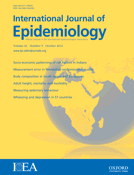
INTERNATIONAL JOURNAL OF EPIDEMIOLOGY
Empowering research for a healthier tomorrow.INTERNATIONAL JOURNAL OF EPIDEMIOLOGY, published by Oxford University Press, is a leading peer-reviewed journal established in 1972, dedicated to advancing the field of epidemiology and its applications in medicine. With an impressive impact factor and a Q1 ranking in both Epidemiology and Miscellaneous Medicine, this journal ranks among the top-tier publications in its category, reflecting its commitment to high-quality research and scholarship. The journal serves as a vital platform for researchers, professionals, and students to share innovative findings, methodologies, and insights in epidemiological science, thus contributing to the broader understanding of public health. The journal includes a diverse range of articles encompassing the latest trends and developments in the field, ensuring comprehensive access to essential information and promoting evidence-based practices. For those seeking rigorous academic discourse and the latest research, the INTERNATIONAL JOURNAL OF EPIDEMIOLOGY is an indispensable resource in the realm of health studies.
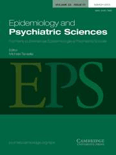
Epidemiology and Psychiatric Sciences
Exploring the intersection of epidemiology and psychiatry.Epidemiology and Psychiatric Sciences is a leading open-access journal published by Cambridge University Press, dedicated to advancing the fields of epidemiology, psychiatry, and public health. With a strong impact reflected in its Q1 ranking in three critical areas—Epidemiology, Psychiatry and Mental Health, and Public Health, Environmental and Occupational Health—this journal stands at the forefront of interdisciplinary research. Since its inception in 2011, Epidemiology and Psychiatric Sciences has provided a platform for researchers and practitioners to share innovative findings, with the aim of improving mental health outcomes and addressing public health challenges. The journal's commitment to open access, a practice adopted in 2020, ensures that vital research is available to a broader audience, further facilitating knowledge dissemination. Researchers, professionals, and students in these domains will find the journal an invaluable resource in navigating the complex interplay between various factors influencing mental health and well-being.
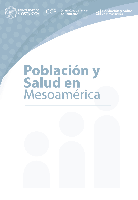
Poblacion y Salud en Mesoamerica
Empowering Research in Demography and Public HealthPoblacion y Salud en Mesoamerica is a pivotal open-access journal published by the University of Costa Rica's Centro Centroamericano Poblacion. With an ISSN of 1659-0201 and an E-ISSN of the same, this journal has been dedicated since 2003 to advancing the fields of demography, epidemiology, health informatics, and public health within the Mesoamerican region. Addressing critical health and population issues, it aims to foster a deeper understanding of demographic trends and their implications on health policies. As of 2023, the journal ranks in the Q4 quartile across several categories, reflecting its commitment to publishing quality research while serving as a platform for emerging scholars and seasoned professionals alike. Although it is currently in the lower quartile ranks, the journal seeks to establish itself as a vital resource in the context of Mesoamerican social sciences and health, making it an essential tool for researchers and practitioners interested in regional population health dynamics. Its editorial board is comprised of experts dedicated to enhancing the scholarly conversation surrounding population health and policy in Central America.

EPIDEMIOLOGIC REVIEWS
Navigating the Complexities of Disease PatternsEPIDEMIOLOGIC REVIEWS, an esteemed publication from Oxford University Press Inc, stands as a beacon in the fields of Epidemiology and Medicine, with a significant focus on synthesizing and analyzing the latest research and developments in these areas since its inception in 1979. This journal, with its ISSN 0193-936X and E-ISSN 1478-6729, is recognized for its high academic rigor, boasting a 2023 Q1 quartile ranking in both Epidemiology and Miscellaneous Medicine, and ranks #25 out of 148 in Scopus's Epidemiology category, placing it in the prestigious 83rd percentile. Although it does not currently offer open access, its subscription options provide comprehensive access to a wealth of epidemiological knowledge, essential for researchers, public health professionals, and students keen on advancing their understanding of health trends and disease patterns. With a commitment to promoting high-quality research and impactful insights, EPIDEMIOLOGIC REVIEWS plays a crucial role in enhancing public health discourse and shaping future epidemiological inquiries.
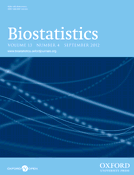
BIOSTATISTICS
Innovating statistical approaches for real-world biomedical challenges.BIOSTATISTICS is a premier academic journal dedicated to the intersection of statistical methodologies and their applications in the field of biomedicine, published by Oxford University Press. With its ISSN 1465-4644 and E-ISSN 1468-4357, the journal has established itself as a crucial resource for researchers and professionals in the broad disciplines of statistics and probability, particularly within medical contexts. The journal proudly holds a Q1 ranking in multiple categories as of 2023, including Medicine (miscellaneous), Statistics and Probability, as well as Statistics, Probability, and Uncertainty, placing it at the forefront of statistical research. It has also achieved notable Scopus rankings, underscoring its influence and reach—ranking 27th in Mathematics (Statistics and Probability) and 94th in Medicine (General Medicine). Although it does not currently offer open access options, BIOSTATISTICS remains committed to advancing scholarly conversation and innovation in statistical science, making it an essential outlet for both established and emerging researchers. With contributions spanning from 2003 to 2024, this journal is actively seeking to foster an understanding of complex statistical approaches in biomedicine, enabling professionals in the field to apply robust statistical techniques to real-world problems.

JOURNAL OF EPIDEMIOLOGY AND COMMUNITY HEALTH
Shaping tomorrow's health policies through rigorous research.JOURNAL OF EPIDEMIOLOGY AND COMMUNITY HEALTH, published by the esteemed BMJ PUBLISHING GROUP, stands as a leading journal in the fields of Epidemiology and Public Health. With an impressive impact factor and ranking in the Q1 quartile for both Epidemiology and Public Health categories as of 2023, it significantly contributes to the dissemination of critical research that shapes public health policies and practices globally. The journal has been a vital resource since 1978, continuously providing an academic platform for the latest advancements and discussions pertinent to community health, environmental concerns, and epidemiological studies. Researchers, professionals, and students alike depend on this influential publication for rigorous peer-reviewed articles, thereby enhancing its reputation as one of the top journals in the field. Despite the absence of Open Access options, the journal's scholarly contributions are evident, making it indispensable for anyone engaged in public health and epidemiological research.

Statistics in Biosciences
Unlocking Biological Mysteries with Statistical ExpertiseStatistics in Biosciences is a distinguished journal published by Springer, focusing on the innovative interplay between statistical methodologies and biosciences. Established in 2009, this journal aims to provide a platform for the dissemination of cutting-edge research in statistical applications within biochemistry, genetics, and molecular biology. With an impressive impact factor and a distinguished ranking in multiple categories, including Q2 in Biochemistry, Genetics and Molecular Biology (miscellaneous) and Q3 in Statistics and Probability, it serves as a crucial resource for researchers, professionals, and students seeking to deepen their understanding of statistical applications in biological contexts. The journal is accessible through traditional subscription models, ensuring that high-quality research remains available to a wide audience. Featuring contributions that advance statistical theory and application in the biosciences, Statistics in Biosciences is committed to fostering collaboration and innovation in a rapidly evolving scientific landscape.
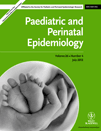
PAEDIATRIC AND PERINATAL EPIDEMIOLOGY
Empowering Researchers to Enhance Child WellbeingPAEDIATRIC AND PERINATAL EPIDEMIOLOGY is a premier journal in the field of epidemiology, published by WILEY. Established in 1987, it provides an invaluable forum for researchers, professionals, and students interested in the intersections of pediatric health and perinatal epidemiology. With its strong reputation, the journal holds a distinguished Q2 ranking in Epidemiology and a Q1 ranking in Pediatrics, Perinatology, and Child Health as of 2023, indicating its influential role in advancing knowledge and practice. The journal is indexed in Scopus, boasting impressive rankings, including Rank #52 out of 330 in Pediatrics, with an 84th percentile standing, demonstrating its significant impact in the field. Although not an Open Access journal, PAEDIATRIC AND PERINATAL EPIDEMIOLOGY equips its readers with high-quality research aimed at improving child and maternal health outcomes, making it a vital resource for anyone committed to advancing public health in these critical areas.
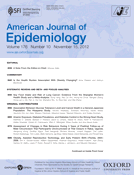
AMERICAN JOURNAL OF EPIDEMIOLOGY
Advancing Epidemiological Insights for Global HealthAmerican Journal of Epidemiology is a premier peer-reviewed journal published by Oxford University Press, focusing on the advancement of epidemiological knowledge and methodology since its inception in 1921. With an ISSN of 0002-9262 and E-ISSN 1476-6256, this influential journal serves as a vital resource for researchers and practitioners worldwide, highlighting significant epidemiological findings and fostering dialogue within the field. Ranked in the Q2 category of Epidemiology and holding a commendable 80th percentile in Scopus' ranking, the journal continues to play a significant role in shaping public health policies and practices. Although the journal is not open access, it remains accessible through institutional subscriptions, ensuring comprehensive discourse on pressing epidemiological issues. By continuously publishing high-quality research that informs disease prevention and control strategies, the American Journal of Epidemiology stands at the forefront of epidemiological inquiry, promoting improved health outcomes on a global scale.
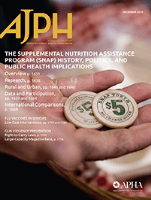
AMERICAN JOURNAL OF PUBLIC HEALTH
Empowering researchers and practitioners to drive change.The American Journal of Public Health, published by the American Public Health Association, stands as a cornerstone in the field of public health and epidemiology since its inception in 1949. With its rigorous peer-review process and a robust commitment to advancing knowledge and research practices, this journal holds a prestigious position in the academic community, as reflected in its 2023 Scopus ranking, where it is placed in the top percentile (93rd) within the categories of Public Health and Environmental and Occupational Health. The journal's focus encompasses a broad spectrum of public health topics, making it essential reading for researchers, practitioners, and students dedicated to improving population health. Subscribers can access invaluable insights through its collection of innovative studies and reviews, thereby reinforcing the journal's role in shaping public health policy and practice. By bridging research and real-world application, the American Journal of Public Health remains a vital resource for those engaged in the quest to improve health outcomes across diverse communities.